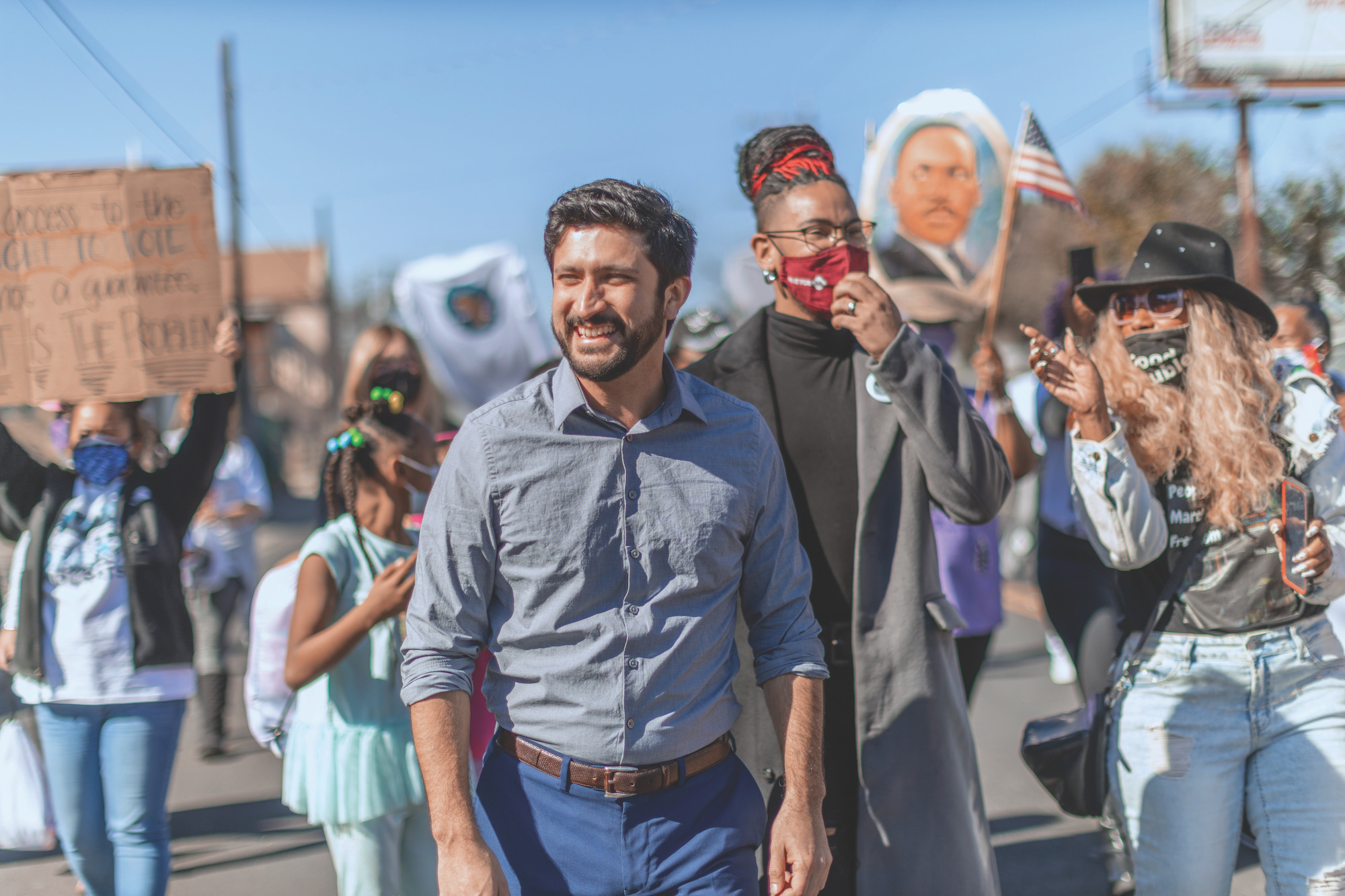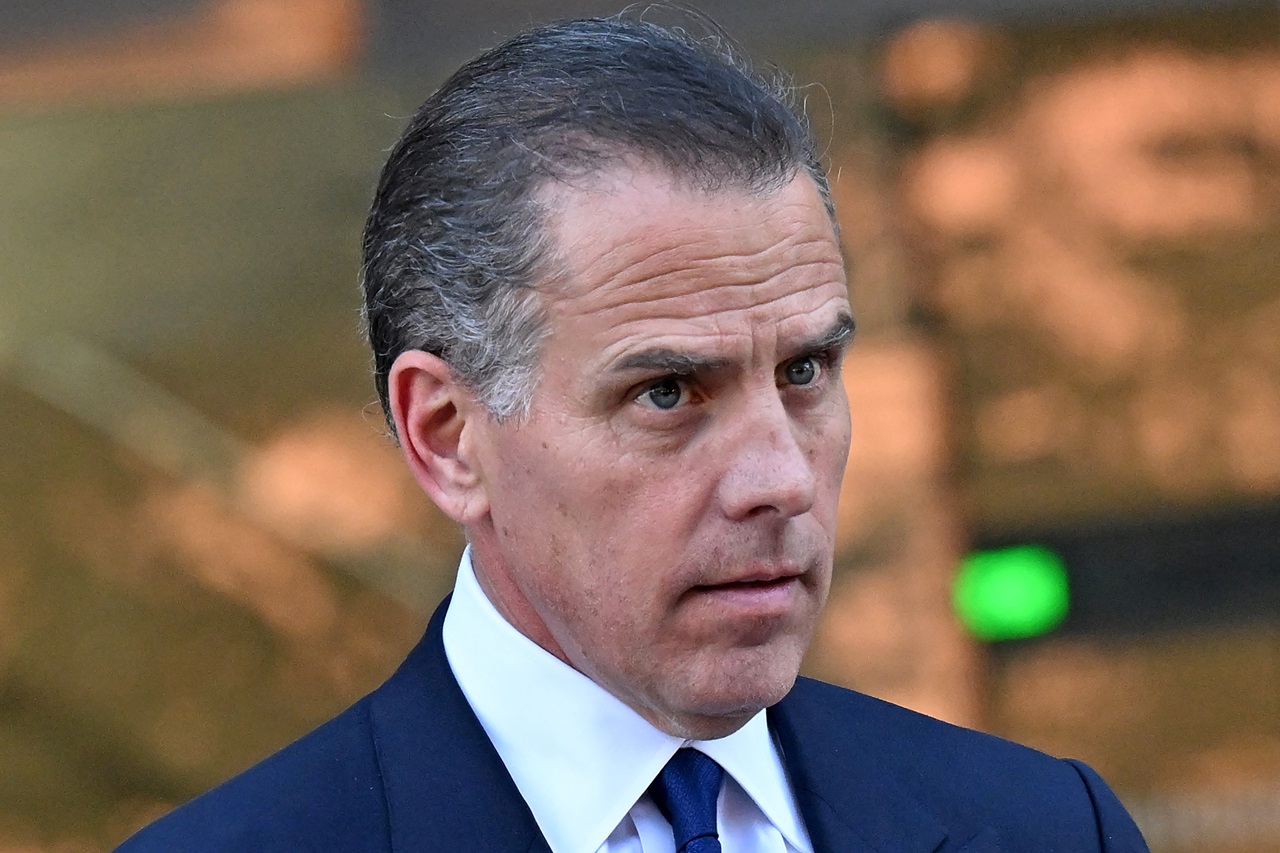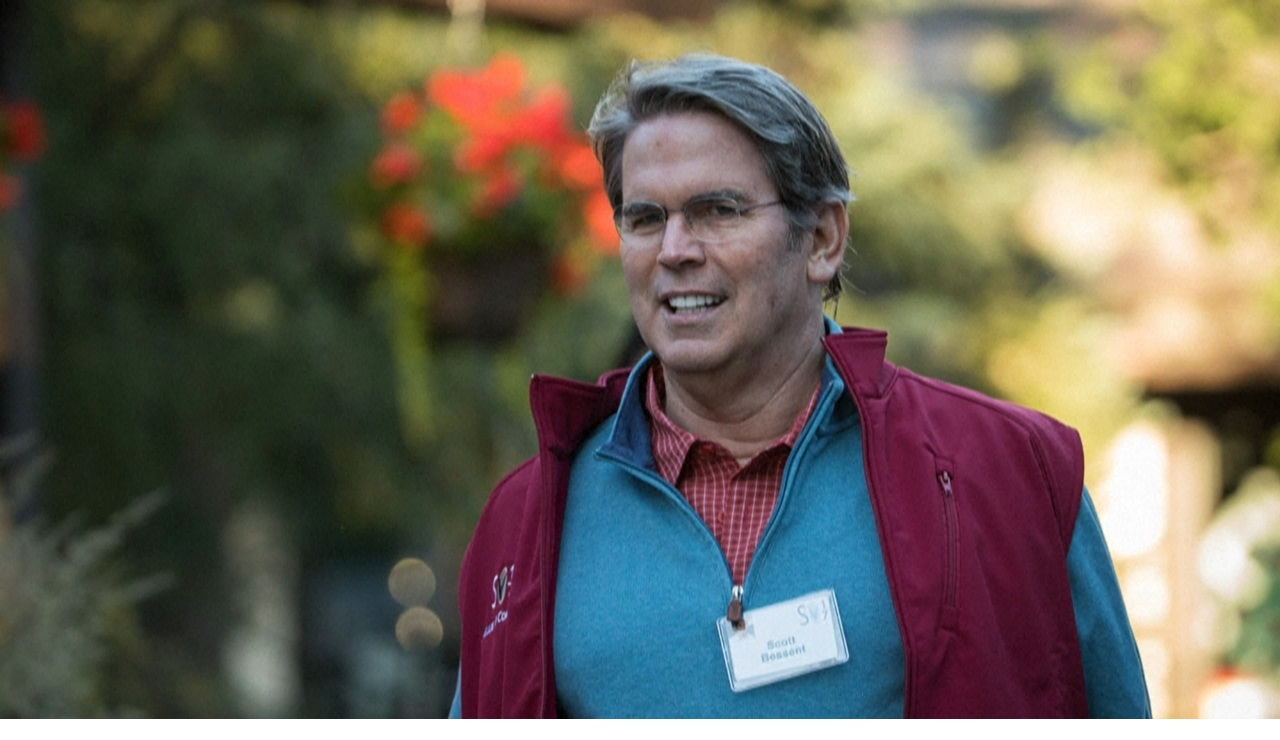
The progressive power of Greg Casar in Texas
There’s a narrative that’s picked up heading into the 2022 midterms that more and more Latino voters are shifting right amid the failure of President Joe Biden and Democrats in Congress to deliver on much of what they promised two years ago.
In no place is that phenomenon trying to be highlighted more than in South Texas.
There, many news stories have been written about the rise of Republican Latino candidates potentially poised to topple longtime Democratic strongholds established by Hispanic leaders and voters. Those leaders are said to be losing their pull, and those voters, growing disenfranchised.
That is not the narrative following Greg Casar’s journey to Congress.
Casar has been a bright spot for progressive Democrats — and the Democratic Party on the whole — this election cycle, which has dire predictions amid President Biden’s low approval rate and overall frustration with Congress’ inability to pass key pieces of his agenda.
The former Austin City Councilmember won his primary for Texas’ 35th Congressional District with more than 61% of the vote. His closest competitor, moderate, longtime Texas State Rep. Eddie Rodriguez only garnered 16%.
Texas’ 35th Congressional District has been held for the last 10 years by Rep. Lloyd Doggett, a Democrat who was once described as an “endangered species” because he was one of the few white male Democrats from Texas in Congress. Before being redistricted into the 35th, Doggett was the representative in Congress from Texas’ 25th and 10th Congressional Districts.
In 2022, he was redistricted again to run in Texas’ 37th Congressional District, opening the door for Casar’s run.
With its current boundaries, the 35th is one of Texas’ most Democratic districts as a product of gerrymandering and runs more than 100 miles from the eastern side of the state capital of Austin, and slivers south to also encompass the city center of San Antonio. Given the Democratic majority, November’s general election is more of a formality than anything.
The district is majority Hispanic with also a considerable Black population — somewhere Casar has always thought he fit, no matter the office he was running for.
Privileged, but a fighter
He’s the son of Mexican immigrants, but doesn’t have the story of economic struggle and farm work that some have, especially in South Texas. Casar had what a growing number of young Hispanics have growing up in the U.S. today — economic privilege.
His dad is from Guadalajara, but moved to Houston to work as a doctor at Baylor St. Luke’s hospital. Casar’s childhood home was in one of the wealthier parts of the Houston metro and he attended private school, where he excelled in sports and got good grades.

In a profile by the Texas Observer’s Gus Bova, he was described as a “liberal kid, pushing back on classmates who expressed anti-LGBTQ+ views and bothered by the inequality he saw when volunteering at homeless shelters.”
That confrontational nature when fighting injustice is something that would come to define Casar’s later dive into community activism in college at the University of Virginia. There, he fought for better wages for university workers.
Greg Casar, the labor organizer
When he came back to Austin on an internship in the Summer of 2010, it was with the Workers Defense Project fighting to organize undocumented workers in a state notorious for its anti-union policies in spite of the federal National Labor Relations Act.
Fast forward to 2022, and Casar told Bova of his high-reaching labor aspirations as a U.S. representative.
“My goal is to be the most pro-labor member of Congress, period,” he told the Texas Observer.
A year after interning, Casar returned for a full-time gig with the Workers Defense Project, where he continued to push the city and its corporate sectors to provide higher wages and more benefits to workers.
Austin’s youngest City Councilmember
Casar first ran for Austin City Council in 2014, after the city finally established a district format. Before, its City Council was elected all at-large, giving unfair advantage to the city’s white population and leaving only two spots for a Black and Hispanic councilmember.
In an interview with the Texas Tribune not long after his triumph in the March 2022 primary, Casar said his early motivations for running were to make the city fully embrace a progressive agenda.
“I wanted us to stop being a faux-gressive city and start being a progressive city,” he told reporter James Barragán.
In his first election, Casar ran for the newly-formed District 3, a Hispanic-majority district that included a lot of newcomers to the city. He came in first in a field of eight candidates, but because no one won more than 50% of the vote, Casar moved onto a runoff election against second-place finisher, Laura Pressley. He would also win that race to seal his spot on Austin City Council as its youngest member ever, at 25 years old.
For the next six years, Casar would become a major figure in the city, state and country for his efforts on Austin City Council, especially for his battles with the state.
CONTENIDO RELACIONADO

Those efforts hit a stride a year after being elected, when Donald Trump rose to become the new U.S. President on the back of a xenophopic campaign that targeted undocumented immigrants, falsely blaming them for the nation’s ills.
In Texas, the state legislature worked to pass Senate Bill 4, a measure that required cooperation between county jails and ICE, and allowed police officers to demand immigration documentation. It was the opposite of what cities like Philadelphia could do in Democratically-run Pennsylvania in establishing itself as a sanctuary city.
To combat the pending bill’s passage, Casar and 23 other protestors occupied the annex of the governor’s office for eight hours and were eventually arrested.
His words in the aftermath of the protest: “This was not so hard. We can do so much more.”
Senate Bill 4 was eventually passed and signed into law by Governor Greg Abbott, but it wouldn’t be the last time Casar would force action from him.
Other issues Casar went to war with the state over include requiring paid sick leave in Austin, taking funding from the police budget and allocating it for more mental health resources and responses to crises, and decriminalizing encampments for the homeless in the city.
All were also eventually shot down at the state level, but Casar showed his mettle and it set him up for the major success he saw in March 2022.
A rising progressive star?
The issues at the forefront of Casar’s Congressional run beyond the labor aspirations are both as ambitious as they come for a progressive Democrat and responsive to the current political moment in the U.S. Casar is a proponent of a Green New Deal, pushed by fellow progressive Rep. Alexandria Ocasio-Cortez, expanded voting rights, more common sense gun legislation, and protected abortion rights, to name a few of the issues.
When he announced his congressional run in November 2021, Casar would eventually be grouped with a trio of progressive candidates attempting to change the face of Texas politics. The other two were immigration lawyer Jessica Cisneros, running against the Laredo Democratic machine that is Rep. Henry Cuellar in Texas’ 28th Congressional District, and former Texas State Rep. Jasmine Crockett running to replace Rep. Eddie Bernice Johnson in the 30th Congressional District.
Casar was the only of the three to avoid a runoff election.
On the campaign trail, not only would he get endorsements from progressive giants like Senators Bernie Sanders and Elizabeth Warren, but he would also share the stage (alongside Cisneros) with the heir apparent to the progressive movement in Ocasio-Cortez. When his seat is solidified in November, so will Casar’s seat alongside her in the fabled squad, which grows in number with each passing election cycle.

Organizing Texas
When discussing his success with Barragán, he pointed to creating a progressive bloc at the start of his campaign. His past work not only tapped him into networks in Austin, but also San Antonio, and the in-between areas part of Comal, Hays and Caldwell counties.
“We really brought together the full coalition of progressive voices and organizations from across this district, and I worked alongside organizations in this district to build that neighborhood infrastructure, that church-based infrastructure, that union-based infrastructure that we could then just turn on for this race,” said Casar.
Even though it’s Texas, that progressive voice is there in droves, and Casar is evidence. He knows it too, and one of his favorite campaign lines speaks to that truth maybe more than any candidate before him.
“Texas, I don’t think is a red state. I think it’s an underorganized state,” he told Barragán.










DEJE UN COMENTARIO:
¡Únete a la discusión! Deja un comentario.